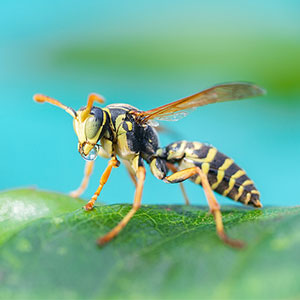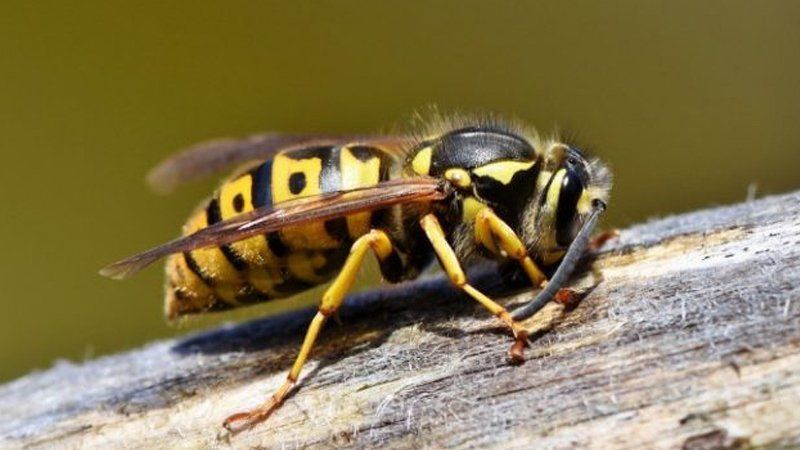
Controlling Wasps: Why It Matters
If a wasp feels threatened or if you get too close to its food source, there is a possibility of an unprovoked attack. When a frightened wasp is in panic mode, it releases a pheromone that triggers nearby wasps of the same family to enter a defensive stinging frenzy. That’s right – disturb a wasp and it might summon its family for support. Stay cautious around wasps and be mindful of their reactions to avoid any unwanted encounters.
A wasp sting can cause intense pain and, in severe cases, be life-threatening. Individuals with a sensitivity to wasp stings may experience anaphylaxis, a serious allergic reaction. Children, the elderly, and those with allergies are especially vulnerable. Anaphylaxis is a medical emergency that requires immediate attention. If someone is displaying symptoms of anaphylaxis, call for an ambulance without delay. Stay safe from wasp stings and seek prompt medical assistance if needed.
If you’re concerned about a significant wasp presence near your home, it’s advisable to reach out to a professional pest controller like The Pest Master. With our expertise, training, we can effectively address the issue. Additionally, we prioritise safety by using appropriate personal protective equipment (PPE) to prevent any potential stings. Don’t hesitate to contact us for expert wasp control services.
Treating Wasp Stings
If you get stung by a wasp, it can be quite painful. If you’re unlucky enough to experience breathing difficulties, dizziness, or facial swelling after a sting, it is crucial to seek immediate medical attention. Don’t delay in getting the necessary treatment.
To treat a sting yourself, follow these simple steps. First, cleanse the area around the sting with soap and water. Next, apply a cold compress, like an ice pack, for at least 30 minutes. If possible, elevate the affected area. Avoid scratching the sting site and refrain from using home remedies such as vinegar and bicarbonate of soda, as they may exacerbate the condition. For expert advice, consider consulting your local pharmacist.
Identifying Wasps' Nests
Wasps’ nests exhibit a fascinating array of shapes and sizes. These architectural marvels accommodate an average of 15,000 to 25,000 wasps during the peak activity of late summer. Constructed from a combination of chewed wood and saliva, the resulting paper-like material is remarkably resilient, lightweight, and waterproof. The creation of these nests involves the collective effort of hundreds of wasps. Explore the wonders of these natural structures and the incredible abilities of these industrious insects.
Each wasp nest is unique, yet they share some common characteristics. Pest controllers have discovered nests in various locations such as lofts, garden sheds, compost heaps, extractor fans, and even under cars. To locate a wasp nest, observe worker wasps and follow them back to their nest as their numbers increase. In early spring, you may come across a small nest about the size of a ping pong ball, indicating the presence of a solitary queen wasp and a few workers. The nest is most populated in the morning or evening, as only about half of the wasp population is inside at any given time. For effective nest treatment, contact The Pest Master.
Wasp or Bee?
Understanding the difference between bees and wasps is crucial for effective handling. While they may appear similar, bees are a valuable species and rarely considered pests. These beneficial pollinators play a vital role in our ecosystems, as approximately one-third of all crops rely on their pollination. Bees obtain energy from nectar and protein from pollen, making them essential for gardens and outdoor spaces. Embrace the presence of bees and their ecological significance.
Wasps can pose a danger due to their aggressive nature and harmful stings. If you’re unsure whether you’re dealing with bees or wasps, it’s recommended to seek assistance from a professional pest controller like The Pest Master. Our experts can identify the type of insect and provide appropriate treatment or advice. Contact us for reliable pest control services.


